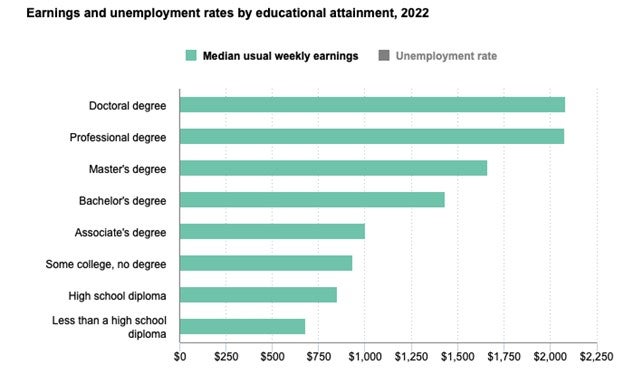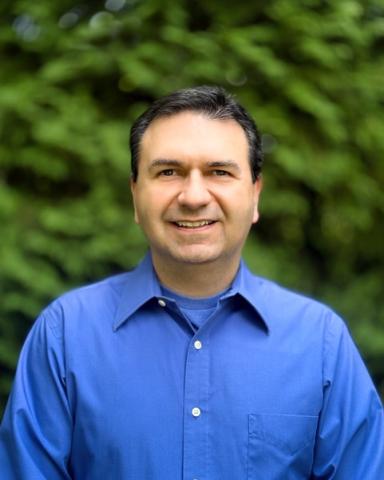
Why Do Counselors Become Educators? A Look at Purpose-Driven Career Transitions
From Clinical Impact to Professional Legacy
After years of providing transformative care to clients, many seasoned counseling professionals begin to sense a shift. The fulfillment of one-on-one therapeutic work remains, but a deeper question begins to take root: How can I make a broader impact?
This turning point is not just about abandoning clinical work due to burnout or fatigue. Although the prevalence of burnout among mental health counselors can be substantial—with estimates ranging from 21% to 60%, depending on work environment, caseload, support systems, and the measures of burnout used in the research (Morse et al., 2012; Paris & Hoge, 2010)—many counselors are looking for the “next step” in developing their career. For many, the natural progression of a purpose-driven career leads to teaching, mentoring, and shaping the next generation of clinicians. Becoming a counselor educator is not a retreat from the field but a step forward; it is a chance to multiply your impact through academic leadership, supervision, and research.
So, why do counselors become educators? The answer often lies in the desire to translate personal purpose into lasting professional legacy.
Mentorship as Mission
Every counselor remembers the mentors who shaped their journey—supervisors who believed in them, professors who challenged them, colleagues who consulted on challenging cases and modeled excellence. With experience, many clinicians feel called to step into that same role, not just informally but as a central part of their professional identity.
Mentorship is deeply embedded in the DNA of counselor education. In supervision, in the classroom, in collaborative research, counselor educators nurture the development of future clinicians with intention, care, and professionalism. These relationships are powerful, enduring, and they often serve as the most meaningful work in an educator’s career.
For those who have supervised practicum students, led training seminars, or coordinated clinical teams, the joy of mentorship is already familiar. A Ph.D. in Counselor Education and Supervision allows you to expand this influence through structured pedagogy, ethical leadership, and advanced training in supervision models.
“In brief, supervision entails several elements: developing the supervisee’s professional skills, supervisee gaining in self-awareness, protecting the client, and mentoring and evaluating the supervisee’s services to clients. These elements are fostered within a learning alliance between supervisor and supervisee.” (Maier, 2019)
Research with Purpose, Leadership with Vision
Mid-career counselors often find themselves asking new questions, such as: What if my insights could inform state or national policy? What if my experience could shape best practices? How can my work help improve clinical training? These are the questions that research and academic leadership can answer.
Counselor educators generate the evidence base that drives the profession forward. Their research advances culturally responsive practices, influences accreditation standards, and ensures ethical excellence across the field. In many ways, the classroom and the research lab become new sites of healing, advocacy, and empowerment.
For those who have spent years applying evidence-based practices, the transition to producing research may seem daunting, but it is a natural extension of clinical wisdom. It allows professionals to examine important questions using methods that can have broader impact.
Similarly, leadership in counselor education also means shaping the systems in which future counselors are trained. With a Ph.D. in CES, you’re not just teaching—you’re helping to build programs, policies, and curricula that reflect your commitment that people should be able to access high-quality treatments and achieve equitable mental health outcomes.
A PhD as the Next Step in a Purposeful Career
Choosing to pursue a PhD is not about starting over’; it’s about stepping into your next role with clarity and intention. For many clinicians, the decision to become a counselor educator is grounded in values: mentorship, social justice, and lifelong learning.
For others, the decision to pursue a PhD opens doors to greater flexibility, allowing them to shape their professional path around more diverse professional roles that include teaching, supervision, research, advocacy, or leadership.
In addition, a PhD provides a demonstrated path to increased financial security. For example, professionals with a doctorate make 25% more in median weekly earnings than those with a master’s degree (Bureau of Labor Statistics, 2023). One source of this increased income is from higher reimbursement rates. A study analyzing over 175,000 psychotherapy providers found that psychologists and other PhD-trained therapists had a mean session reimbursement rate of $167.69 when accepting insurance, whereas master's-level providers had significantly lower average rates (Zhu et al., 2024).


Take the Next Step: Amplify Your Purpose
If you’re a counseling professional who is yearning to have impact beyond the therapy room, it may be time to consider a PhD in Counselor Education and Supervision.
Reflect on your career:
- Have you found deep meaning in mentoring interns or early-career counselors?
- Are you ready to contribute to the profession through research or program development?
- Do you want to shape the future of counseling through leadership and teaching?
- Are you interested in helping to shape policy to create better access and more equitable systems?
If these questions resonate with you, you’re not alone. You’re part of a growing movement of counselors choosing to evolve their purpose through education. Indeed, a significant portion of masters-level counselors pursue Phds later in their careers, with approximately two thirds of students who enter a doctoral program in counseling psychology coming from a prior master's program (Norcross et al., 2010).
“It just felt like the next step. It felt very natural, and it felt like something I was excited to... it felt like a goal I could work towards.” (Jennings-Hood, in Jones, 2023)
Which Skills Do You Already Have And Which Ones Await You?
Earning a PhD in Counselor Education & Supervision requires the development of a comprehensive set of skills across several core domains. These domains are outlined by the Council for Accreditation of Counseling and Related Educational Programs (CACREP) and are consistently emphasized across accredited university programs, like the one at PAU. Below is a summary of the essential skills needed according to CACREP standards. You can use this as a checklist to verify which skills you already have and to look forward to the skills you can learn in a Counselor Education & Supervision program.
✅Counseling
- Understand and integrate multiple counseling theories
- Apply evidence-based counseling techniques
- Conceptualize clients from various perspectives
- Evaluate counseling effectiveness
- Practice ethically and with cultural awareness in diverse settings
✅ Supervision
- Understand supervision models and purposes
- Build supervision skills and personal style
- Assess supervisees’ development and needs
- Navigate legal, ethical, and cultural supervision practices
- Use technology and various supervision formats
- Manage evaluation, remediation, and gatekeeping
✅ Teaching
- Understand the educator’s role and pedagogy
- Design, deliver, and assess curriculum (including online)
- Apply adult learning models
- Conduct student assessment and remediation
- Use ethical and culturally responsive teaching methods
- Provide mentoring and uphold gatekeeping standards
✅ Research & Scholarship
- Design and analyze quantitative and qualitative research
- Develop and evaluate instruments and programs
- Write for professional publication and conferences
- Prepare IRB proposals and seek funding (e.g., grants)
- Conduct research ethically and with cultural sensitivity
✅ Leadership & Advocacy
- Apply leadership theories in various settings
- Participate in professional and academic leadership
- Understand accreditation, administration, and crisis response
- Advocate for the profession and clients at all levels
- Lead on multicultural and social justice issues
- Practice ethical and culturally competent leadership

About the Author
Dr. Alex Casillas is a seasoned psychologist and educator with over two decades of experience in applied psychology, assessment, and counselor education. Currently serving as a Principal Research Psychologist in the assessment industry and an Adjunct Instructor in Applied Psychology at NYU Steinhardt, Dr. Casillas bridges research and practice to enhance counselor training and educational equity. His academic journey includes a Ph.D. from the University of Iowa and a B.A. from Grinnell College. He is originally from Mexico and a fierce advocate of inclusion, belonging, and equity. Through his work, Dr. Casillas emphasizes the importance of culturally responsive practices and empirically-informed strategies in counselor education.
